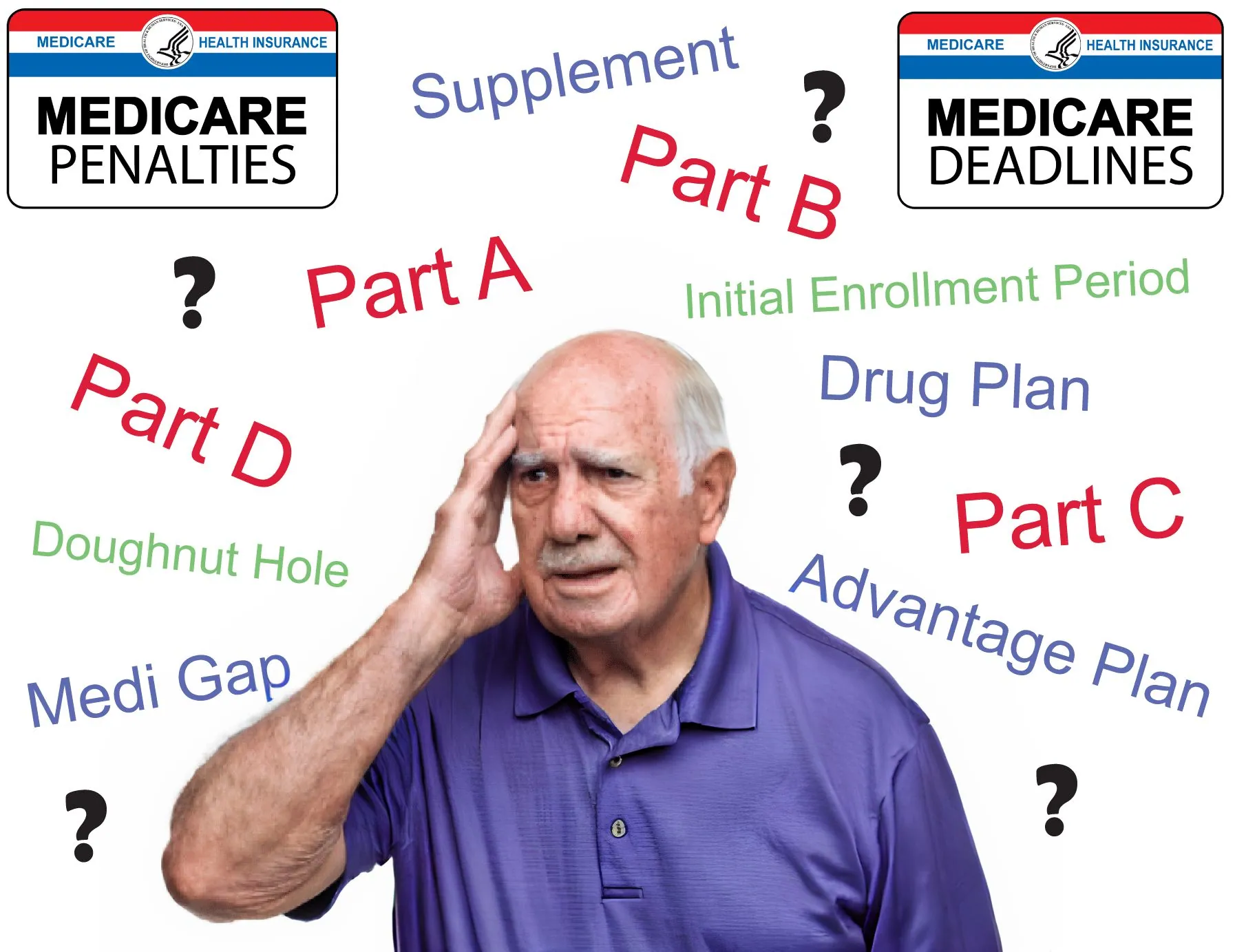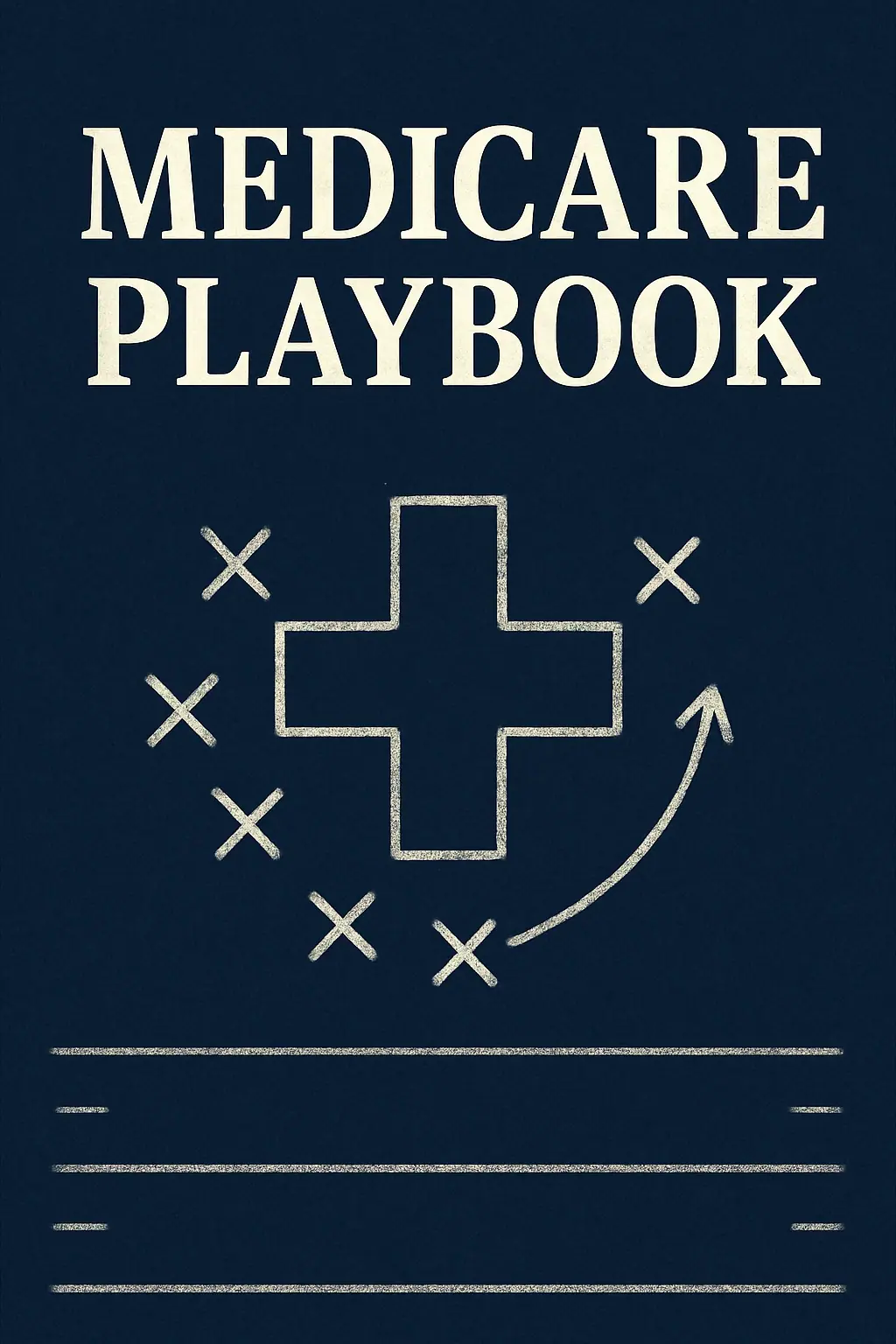Confused by Medicare?
Let Tonia Pettitt, CMIP© Help You Choose the Right Plan
Use our quoting tool below to compare plans, or schedule a free consultation with Tonia to get personalized guidance today.
What is Medicare Insurance?
A federal health insurance program that provides critical coverage for individuals age 65 and older, as well as those under 65 with qualifying disabilities or End-Stage Renal Disease (ESRD). It helps pay for hospital stays, doctor visits, preventive care, and prescription drugs—reducing out-of-pocket costs and ensuring access to essential medical services.
Whether you’re nearing retirement or navigating a disability, it acts as a vital safety net—protecting your health and your financial future.
How Medicare Can Help You
It offers broad coverage that can dramatically reduce your healthcare costs—especially as you age or manage chronic conditions. Depending on the plan you choose, it can help pay for hospital stays, doctor visits, preventive screenings, specialist care, and prescription drugs.
For those who qualify, it also provides reliable access to the care you need—without the overwhelming financial burden. Whether you’re retiring soon or already enrolled, the right Medicare plan can protect both your health and your savings.
Who is eligible for Medicare?
Eligibility is based on a few qualifying factors:
- You are 65 or older
- You are younger than 65 but have been classified as disabled for longer than two years, and have received Social Security disability checks.
- You are eligible to receive benefits from Social Security
- You are a United States Citizen OR you have legally resided in the Untied States for more than 5 years
- You have Lou Gehrig Disease
- You have End-Stage Renal Disease
Medicare Basics: What You Need to Know
Turning 65 & Medicare
- You are eligible when you turn 65.
- You can enroll during your Initial Enrollment Period (IEP), which starts 3 months before, includes your birthday month, and ends 3 months after.
- If you’re already receiving Social Security, you’ll be automatically enrolled in Part A and Part B.
- If you are not receiving Social Security, you will need to sign up for Part A and Part B.
- If you’re still working and have employer coverage, you may be able to delay Part B without penalties.
New to Medicare? Start Here
Medicare has four parts:
-
- Part A (Hospital Insurance) – Covers hospital stays, skilled nursing care, hospice, and some home health care.
- Part B (Medical Insurance) – Covers doctor visits, outpatient care, preventive services, and medical equipment.
- Part C (Medicare Advantage) – Private insurance plans that bundle Parts A, B, and usually D.
- Part D (Prescription Drug Coverage) – Helps cover medication costs.
- You can choose between Original Medicare (Parts A & B) with optional Medigap (supplement insurance) or a Medicare Advantage plan.
- If you miss your Initial Enrollment Period, you may face late enrollment penalties.
Is Your Medicare Advantage Plan Changing? Here’s What to Do:
- Medicare Advantage plans can change every year—premiums, drug coverage, and provider networks may shift.
- The Annual Enrollment Period (AEP) runs from October 15 – December 7; this is your chance to switch, drop, or enroll in a new plan.
- Open Enrollment runs January 1 – March 31, allowing you a one-time switch to another Medicare Advantage plan with or without drug coverage. or return to Original Medicare and join a separate Medicare drug plan.
- Always review your Annual Notice of Change (ANOC) to understand how your plan is changing.
Losing Coverage? You Have Options:
- If you lose employer or group health coverage, you may qualify for a Special Enrollment Period (SEP) to sign up without penalties.
- If you lose Medicare Advantage or Part D coverage, you may be able to switch plans during a Special Enrollment Period.
- Check if you qualify for Medicaid, Extra Help, or a Medicare Savings Program to lower costs.
- You may be eligible for a Medigap (Medicare Supplement) plan to cover out-of-pocket costs from Original Medicare.
Benefits of Medicare
-
It offers different parts to cover specific services:
• Part A: Hospital Insurance, covering inpatient hospital stays, care in a skilled nursing facility, hospice care, and some home health care.
• Part B: Medical Insurance, covering certain doctors’ services, outpatient care, medical supplies, and preventive services.
• Part C (Medicare Advantage): An alternative to Original Medicare that bundles Part A, Part B, and usually Part D (prescription drug coverage). These plans are offered by private insurance companies and often include additional benefits like vision, dental, and wellness programs.
• Part D: Prescription Drug Coverage, helping to cover the cost of prescription drugs, including many recommended shots or vaccines.
Open Enrollment vs. Applying After Your Open Enrollment Period
Open Enrollment
Open Enrollment Period: This is the designated time each year when you can enroll in or make changes to your coverage without any penalties. For most people, the Open Enrollment Period runs from October 15 to December 7 each year. During this period, you can:
• Switch from Original Medicare to a Medicare Advantage Plan (Part C) or vice versa.
• Change from one Medicare Advantage Plan to another.
• Enroll in or change a Part D prescription drug plan.
Applying After the Open Enrollment Period
If you miss the Open Enrollment Period, you may still be able to make changes to your coverage, but there could be consequences:
• General Enrollment Period (January 1 – March 31): If you didn’t sign up for Part A or Part B when you were first eligible, you could sign up during this period. However, your coverage won’t start until July 1, and you may have to pay a late enrollment penalty for as long as you have Medicare.
• Special Enrollment Period (SEP): If you qualify for a SEP, you can make changes to your Medicare Advantage and Part D coverage outside the standard Open Enrollment Period. SEPs can be triggered by certain life events, such as moving out of your plan’s service area, losing other insurance coverage, or qualifying for extra help due to low income.
• Late Enrollment Penalties: If you don’t sign up for Medicare when you’re first eligible and don’t have a qualifying Special Enrollment Period, you may face late enrollment penalties. These penalties can increase your premium costs and will last as long as you have Medicare coverage.
Understanding the timing and rules around enrollment periods is crucial to maximizing your benefits and avoiding unnecessary costs.
Medicare FAQs
-
It is a federal health insurance program primarily for individuals 65 and older, as well as younger people with certain disabilities or End-Stage Renal Disease (ESRD). It helps cover hospital care, doctor visits, preventive services, and prescription drugs depending on the coverage selected.
No-Obligation Medicare Consultation
Choosing the right plan can protect your health, lower your out-of-pocket costs, and help you avoid costly enrollment mistakes. Whether you’re new to it or considering a plan change, expert guidance can make all the difference.
Tonia, CMIP© has over 20 years of experience, and is here to help you navigate your options with clarity and confidence.
👉 Schedule your free consultation with Tonia today and take the first step toward the right coverage for your needs.
Additional Resources
Get Personalized Retirement Insights and Support
Use our Lifetime Income Calculator below to estimate your guaranteed income in retirement—and see how long your savings can last.
Have questions? Fill out the Contact Us form and a member of our team will reach out to help you build a strategy tailored to your goals.
One Click Away from Coverage — Get a Quote or Apply Today for Life Insurance, Annuities, Medicare & More
From instant term life to guaranteed issue policies, fixed annuities to Medicare supplements, we make it easy to compare top-rated options and apply online in minutes. Whether you’re planning for retirement, protecting your family, or exploring long-term care coverage, you’re just one click away from customized protection.
FAQs: Medicare
What are the parts of Medicare?
Medicare has four parts: Part A (hospital), Part B (medical), Part C (Advantage plans combining A & B plus extras), and Part D (prescription drug coverage).
When can I enroll in Medicare?
Your Initial Enrollment Period is 3 months before, the month of, and 3 months after your 65th birthday. Other windows include the General Enrollment Period (Jan–Mar) and Annual Enrollment Period (Oct–Dec).
Do I still need supplemental or Advantage coverage?
Yes. Original Medicare doesn’t cover all costs or services. Many choose Medigap (supplement) to fill gaps, or Medicare Advantage for integrated benefits like vision, dental, or fitness.
What is a Medigap plan?
Medigap (Medicare Supplement) is standalone coverage that helps pay out-of-pocket costs under Original Medicare, like deductibles, coinsurance, and copays. Monthly premiums vary by plan and region.
How do Medicare Advantage plans work?
Medicare Advantage (Part C) is offered by private insurers and replaces Original Medicare, often bundling Part D and extra benefits like dental, vision, hearing, and wellness programs.
What’s the penalty for delaying Medicare Part B?
If you don’t enroll in Part B when first eligible and lack creditable coverage, your premiums may be permanently higher—10% extra per 12-month delay.
Can I change my Medicare plan later?
Yes. Use the Annual Enrollment Period (Oct 15 – Dec 7) or, if qualified, a Special Enrollment Period. You can switch between Original + Medigap, or Medicare Advantage, and change Part D plans.
How do I estimate my prescription drug costs?
Provide your current drug list (name, dosage, frequency), and we’ll compare Part D plan formularies to estimate yearly out-of-pocket and identify cost-saving options.
Does income affect Medicare premiums?
Yes. If your modified adjusted gross income exceeds certain thresholds, you may pay an Income Related Monthly Adjustment Amount (IRMAA) in addition to standard Part B and Part D premiums.




